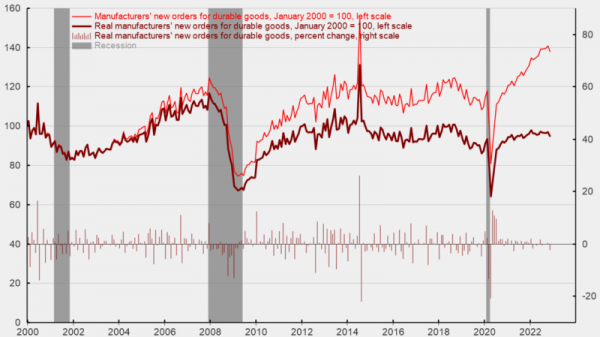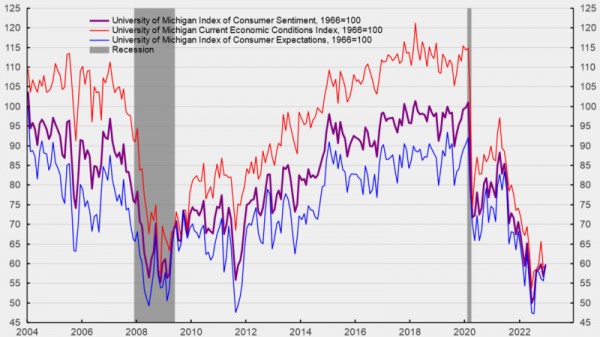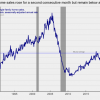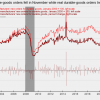Disney posted fiscal first-quarter earnings Wednesday that beat on the top and bottom lines, but revealed the beginnings of expected streaming subscriber losses at Disney+.
The company’s streaming business reported another quarter of profitability despite a 1% decline in subscribers for Disney+, the company’s flagship service. While domestic subscriptions for the platform increased around 1%, international numbers declined around 2%.
Disney warned during its fiscal fourth-quarter report in November that it expected a “modest decline” in subscriptions during the December period. Disney told investors Wednesday that it expects another “modest decline” in subscribers during the second quarter.
Total paid Disney+ subscriptions stand at 124.6 million, compared to 125.3 million at the end of the company’s fiscal fourth quarter. Total Hulu subscriptions rose 3% during the period to 53.6 million.
The slowdown in streaming subscriber growth follows an increase in prices for its services last year. Disney+’s average monthly revenue per paid subscriber increased roughly 4% to $7.99 due to those price hikes, the company said.
Disney’s stock was up about 2% in premarket trading.
Here is what Disney reported for the period ended December 28 compared with what Wall Street expected, according to LSEG
Disney’s net income increased nearly 23% to $2.64 billion, or $1.40 per share, from $2.15 billion or $1.04 per share, during the same quarter last year. Adjusting for one-time items including restructuring charges and impairments related to intangible Hulu assets, Disney reported adjusted earnings of $1.76 per share.
Revenue increased 4.8% to $24.69 billion compared to $23.55 billion in the year-earlier period.
The company saw revenue gains across the board for its entertainment, sports and experience segments.
Its entertainment division saw a 9% jump in revenue, reaching $10.87 billion. Operating income for the unit, which includes its direct-to-consumer, linear and content sales businesses, increased 95% to $1.7 billion during the quarter thanks to higher content sales and licensing. Linear continued to drag on overall results.
Still, CEO Bob Iger remained positive on Wednesday’s call with investors when it came to the linear TV business, echoing similar comments made in November’s earnings call.
“They are not a burden at all. They are actually an asset,” Iger said Wednesday, noting that Disney is programming and funding the networks so they can feed into streaming.
While he said he wouldn’t rule out the possibility of changes to the TV networks in the future, he said that wouldn’t be now.
“We actually feel good about the hand that we have and the manner in which we’re managing both the linear and streaming businesses across the board,” Iger said.
Disney’s box office success helped lift the company’s results during the quarter.
The debut of “Moana 2” over Thanksgiving weekend helped push the box office to new heights. The animated sequel was still going strong at the box office through the new year, topping $1 billion during the Martin Luther King Jr. Day weekend. The company noted Wednesday its content sales/licensing and other operating income got a boost from “Moana 2.”
Overall, Disney dominated the box office in 2024, with the help of other films like Marvel’s “Deadpool & Wolverine” and Pixar’s “Inside Out 2.”
The company said it expects double-digit growth in operating income for the entertainment segment in fiscal 2025, with an increase in direct-to-consumer operating income of around $875 million.
Over at its experiences business, which includes parks, cruises and resorts as well as consumer products, revenue rose 3% during the quarter to $9.42 billion.
Domestic theme park revenue accounted for 68% of the division’s total, or $6.43 billion. While that revenue marked a 2% improvement over the same quarter last year, the combination of Hurricanes Milton and Helene coupled with declines in attendance and investments in Disney’s fleet of cruise ships weighed on domestic operating income.
The experiences division posted a 5% decline in domestic theme park operating income for the quarter, at $1.98 billion.
Disney expects its experience segment to see operating income growth of between 6% and 8% in fiscal 2025.
Theme parks in the U.S. have recently experienced a slowdown in foot traffic following the post-Covid surge in attendance.
Disney CFO Hugh Johnston said Wednesday on CNBC’s “Squawk Box” that the experiences segment performed better than expected for the fiscal quarter.
“In fact, the consumer is a bit stronger than we would have expected,” Johnston said Wednesday. “I think what we’re seeing is consumers are just very value focused, and you deliver value to them, they’re willing to pay the price for it.”
Disney’s parks recently turned a record revenue and profit, even as the company has raised prices for its destinations. The company is in the midst of a 10-year, $60 billion investment in the segment.
In sports, Disney’s ESPN reported revenue growth of 8% year over year, reaching $4.81 billion, and operating income that was up 15% from the prior-year period to $228 million.
The company expects operating income for its overall sports segment, which houses ESPN as well as Star India, to grow 13% in fiscal 2025.
Disney said on Wednesday that its sports segment operating incoming for the fiscal second quarter would be “adversely impacted” by about $100 million related to the shifting of three College Football Playoff games from the first quarter into the second quarter as well as an additional NFL game during the period.
This fall Disney’s networks broadcasted the entirety of the Southeastern Conference college football schedule.
Disney’s broadcaster ABC averaged 5.8 million viewers for 46 regular season college football games, which was a 56% year-over-year increase, Disney executives noted in a commentary release on Wednesday. The recent college football season helped lift Disney’s advertising revenue this past season.
Meanwhile, Disney also said that guidance for unit operating income includes a roughly $50 million hit tied to its exit from the Venu sports joint venture. Disney and its joint venture partners, Warner Bros. Discovery and Fox, called off their efforts to move forward with Venu, which was supposed to be a streaming app that included all of the live sports from its parent companies.
The change in strategy came after legal headaches that halted the launch of Venu last fall.
The rise of skinny bundles — traditional pay TV distributors’ slimmed-down offerings focused on sports and news networks — were a contributing factor, too. Iger said on Wednesday’s call with investors that Venu “basically looked redundant to us,” next to skinny bundle offerings.
As a result of the Venu stoppage, Fox on Tuesday announced it would move forward with its own streaming service after years of staying largely on the sidelines of the direct-to-consumer streaming game. Fox executives also noted that skinny bundles would benefit its portfolio of networks.
Disney has been looking into various ways to grow its streaming options, from merging its apps into Disney+ to exploring different options for ESPN, such as Venu.
The company also plans to launch its own direct-to-consumer streaming app for ESPN this fall, which has been the priority, company executives said Wednesday.
“We’re obviously leaning into the development of what is now called ‘Flagship,’ which is essentially ESPN with multiple, mulitple elements to it,” Iger said Wednesday, noting sports betting and consumers’ ability to customize the platforms to their preferences.
Disclosure: Comcast, which owns CNBC parent NBCUniversal, is a co-owner of Hulu.




















